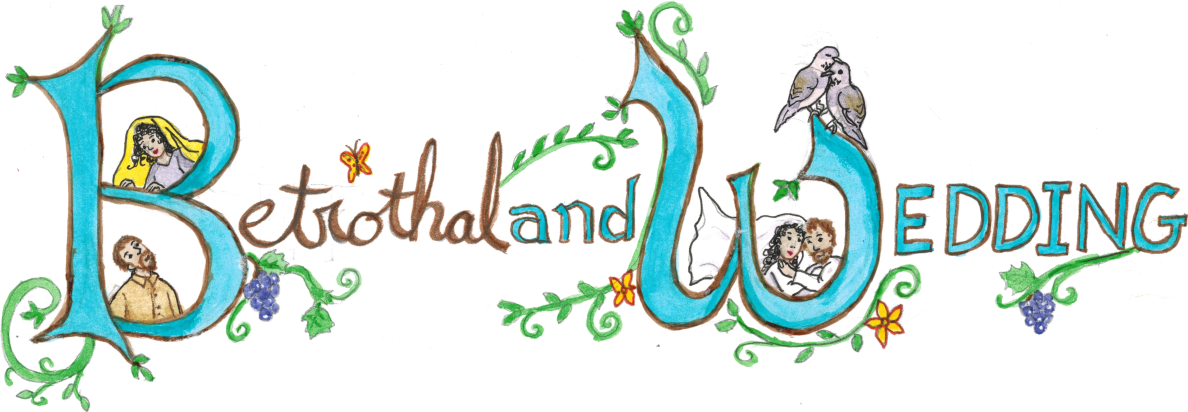
Betrothal Done Wrong
“Betrothal doesn’t work,” we sometimes hear. “A couple I knew got betrothed, and it was a disaster!” Often when we ask questions about the horror story to get more details, it turns out to be either a case of blaming the method for the heart problems, or even more often, that the people involved were not actually practicing “betrothal” at all! This is significant because when people only follow part of the biblical model they should not expect things to work out any better than if they had used any other half-biblical method. In some cases it can even make matters worse! (As we will explain below.) There are also cases where a person’s dissatisfaction with their betrothal experience was because they had expected it to be a method that guaranteed smooth entry into marriage or that it provided a fail-safe to a marriage going downhill later. That sets you up for disappointment because no approach is free from the effects of sin. However, we believe biblical betrothal has the least amount of problems from among the path choices available. It is also the one God Himself chose to represent His pursuance and covenant with us and that alone makes it worth doing. But, back to the problem of incorrect betrothal practices. To try to avoid the continuing confusions and mistakes in our midst, we would like to present here the things we have seen people do under the label of “betrothal” that do not fit the Bible’s version.
Mistake #1. Parental Commitment Without Individual Commitment
The betrothals that have the least likelihood of resulting in long-lasting happiness, we find, are those contracted by the parents with little to no participation from their singles. These are the cases where the parents (or one parent) are enthusiastic about practicing the betrothal approach while their young adult is not, but the young person gets pressured into going along with it. Other times the single person was willing to follow the betrothal path to marriage, but their parents chose a spouse for them without the single person being confident in the selection; or the parents make a commitment before involving their young person.
Why it Matters.
When there is any holding back or a feeling of reluctance in either the man or woman in the betrothal, it affects their relationship. This issue does not necessarily go away. This is why we see people breaking up during their betrothal or even getting separated or divorcing after the wedding! If the couple is not absolutely sure they should be entering a covenant, they should not enter it, for their own sake and for the sake of the other person. Parents must be careful in their guiding and planning to not force their singles into something they are not fully ready to accept and commit to for themselves.
Mistake #2. Saying “Betrothed” while Meaning “Engaged”
In the Bible there is no engagement relationship. There are only single people or husbands and wives. (Betrothed people are pre-consummated husbands and wives.) Yet a lot of people suffer from the mistake of thinking that when the Bible says “betrothed,” it is talking about the kind of pre-marriage relationship that people in modern times enter into. This is mostly the fault of the Catholic church which centuries ago decided that couples were only allowed to promise to become betrothed in the future and not to literally be betrothed until their wedding day. Society continued to use the “betrothed” title for couples after this ruling even though they were technically only “promised” or “engaged” since they were not fully betrothed in the original husband-and-wife-by-covenant sense. (Click here to learn more about the origin of modern betrothal.)
So yes, dictionaries will tell you that “betrothed” is just an old fashioned word for “engaged” which is true, unless we go further back to when it meant your word had been given, you had entered a marriage covenant and were each other’s pre-consummated spouse.
Why it Matters
When people label their engagement as a “betrothal,” they confuse their friends who are used to the biblical meaning (husband and wife by covenant.) They also can experience all the problems inherent with engagement, such as confusion over whether the bride needs to submit to her fiance and experiencing sexual desire for a person who is still not their spouse, among others.
The most damaging repercussion of saying “betrothed” and meaning “engaged” is that if the couple release each other from their agreement they cause a big scandal in the eyes of the people who thought, when they said “betrothed,” that they meant it in the original sense, which would require a literal divorce. More about that later.
Mistake #3. Get Engaged and a Few Months Later, “Have a Betrothal”
Engagement is usually a verbal agreement to get married in the future. Couples who do this and then later have a betrothal ceremony may do this for several different reasons. One is because they are thinking of “betrothal” as the modern Catholic rite where an already engaged couple makes a solemn vow before officiants that they will marry at a future date. A second reason is when a couple and their families think of “betrothal” as an ancient Jewish tradition that occurs sometime before the wedding, but they do not understand why it did. Another reason a couple will get engaged and then betrothed is because they want their betrothal to be a fancy event so they go ahead and get engaged while they are preparing for it. We have even known couples who have had a betrothal ceremony as late as the day before their wedding. Our concern in those cases is not how much time occurs between a couple’s betrothal and their wedding, but that they seem to have missed the major purpose of getting betrothed!
Why it Matters
biblical betrothal is not just a traditional ceremony, but the point in time at which a man and a woman become husband and wife. (Click here to download our ebook, "Betrothal: What is it, Biblically?")
Normally in our culture people say “I do,” and then consummate their union a few hours later. In the Bible people would say “I do” much sooner. Why so soon? Because the time a couple spends getting ready for their wedding, bonding and merging finances should happen between a lawful couple instead of between two individuals who are just planning to become husband and wife (engagement). From the biblical betrothal perspective, instead of asking, “Why covenant so soon?” the question would be, “Why so late?” When you are sure you should get married is the time to get betrothed. That way you can start becoming “one” spiritually, emotionally and mentally within a relationship that is recognized and regulated by God’s word.
To be engaged for a while, then get betrothed, misses the point and purpose of having a pre-wedding day betrothal. For a couple to be engaged for a while first means they will have been falling in love and creating a deep relationship with a person who is still not actually theirs. It also continues the misconstruing of what was practiced in Bible times with what the Catholic church does now under the same label.
Mistake #4. The Singles Date or Court Each Other, Then Get Betrothed.
The norm in American society is for a man and woman wondering if the other is a good match to spend some time being an “official” couple. This is considered a useful way to evaluate each other and come to a decision. Some of these couples, who have been introduced to betrothal, continue this practice of being in an exclusive relationship and then move from their dating/courting relationship to getting betrothed. As we mentioned in the point above, having an exclusive relationship that is not “husband and wife” is not something that we find in the Bible. In true biblical betrothal, the man and woman considering marriage will not become a couple but spend their consideration stage as separate individuals. They save all couple behaviors for after betrothal. Couple behaviors such as, holding hands, having hours-long phone calls, sharing private information/feelings; all the privileges that are usually reserved for “significant others,” are saved for when they are in covenant with each other.
Why it Matters.
Couples who do dating or courtship before getting betrothed miss out on the major advantage of having a betrothal - which is to gain a legitimate condition under which to foster attachment. When betrothal is practiced biblically, not only is romance not taking place prematurely, but it makes that in-between “relationship” stage unnecessary! Practicing romance the way the secular culture does, and then throwing betrothal into the mix perpetuates the misunderstandings surrounding betrothal (see mistakes 1 and 2). The decision to marry should come from the leading of the Holy Spirit, not from purposefully building a couple-style relationship by acting like one ahead of time.
Mistake #5. Breaking Off the Betrothal
This is a mistake that always results in harm. The people involved often are under the impression that betrothal is just a ceremony or that betrothal is the same as engagement (see mistakes 2 and 3). They think that if problems arise, they are free to break up and move on. If what they did was just an engagement under the label of betrothal, we think it can be mutually broken off and that it would “only” incur guilt of vow breaking.
However, if it was betrothal in the biblical sense, where the people are lawfully husband and wife, it cannot be broken off at all! Not without a divorce, that is. People who try to “move on” from a biblical betrothal that is not properly divorced would be committing adultery!
In the case where half of the couple thought of themselves as engaged and the other thought that he/she was a spouse, this is an extremely difficult situation. It is also painful for the family and community of the couple who often fall onto one side of the fence or the other, with those close either arguing that everything is okay or believing that grievous sin has been committed.
Why it Matters.
Many people will not marry a person from a betrothal that was “broken off” because they are not positive that would not be adultery. Even without that danger, the reputations of people who break off a betrothal become damaged because onlookers think something substantial must be wrong with one or both of the people to cause them to break up something so serious.
How Can We Avoid the Confusion?
We could decide, like the Catholic church did, that practicing betrothal in the biblical way causes too many problems and needs to be abandoned. But look at what abandoning the biblical model has resulted in! Couples are forced to bond before they make their covenant. Then people get used to thinking of a romantic relationship as something you can enter or leave as the mood strikes and that a chain of relationships is normal before you find the right one. Not having a clear understanding of betrothal interferes with our understanding of biblical divorce and covenants. It causes couples to get their parents and mentors involved late in the relationship process (if at all) instead of at the on-set when it would be the most beneficial. And worst of all, we do not get the earthly demonstration of our relationship with Yeshua (Jesus) that we were intended to see.
A big part of our purpose in starting this ministry was to help correct the lack of understanding on what the Bible shows about betrothal. Instead of reacting to the problems by throwing out the good with the bad, we would rather educate and encourage. Instead of despairing when wrongs happen (betrothal is no more sin-proof than other methods), we would rather point people to the straight and narrow path leading to the Father who welcomes home the prodigal. We as a community of believers must be gracious and forgiving to those who err. It is understandable that people have an incomplete idea about betrothal because biblical-style betrothal has not been practiced for centuries in the Western world. Of course there is confusion about it!
You can help make a positive change by sharing our resources with others, remembering when you do that the ultimate goal is to glorify The King!

